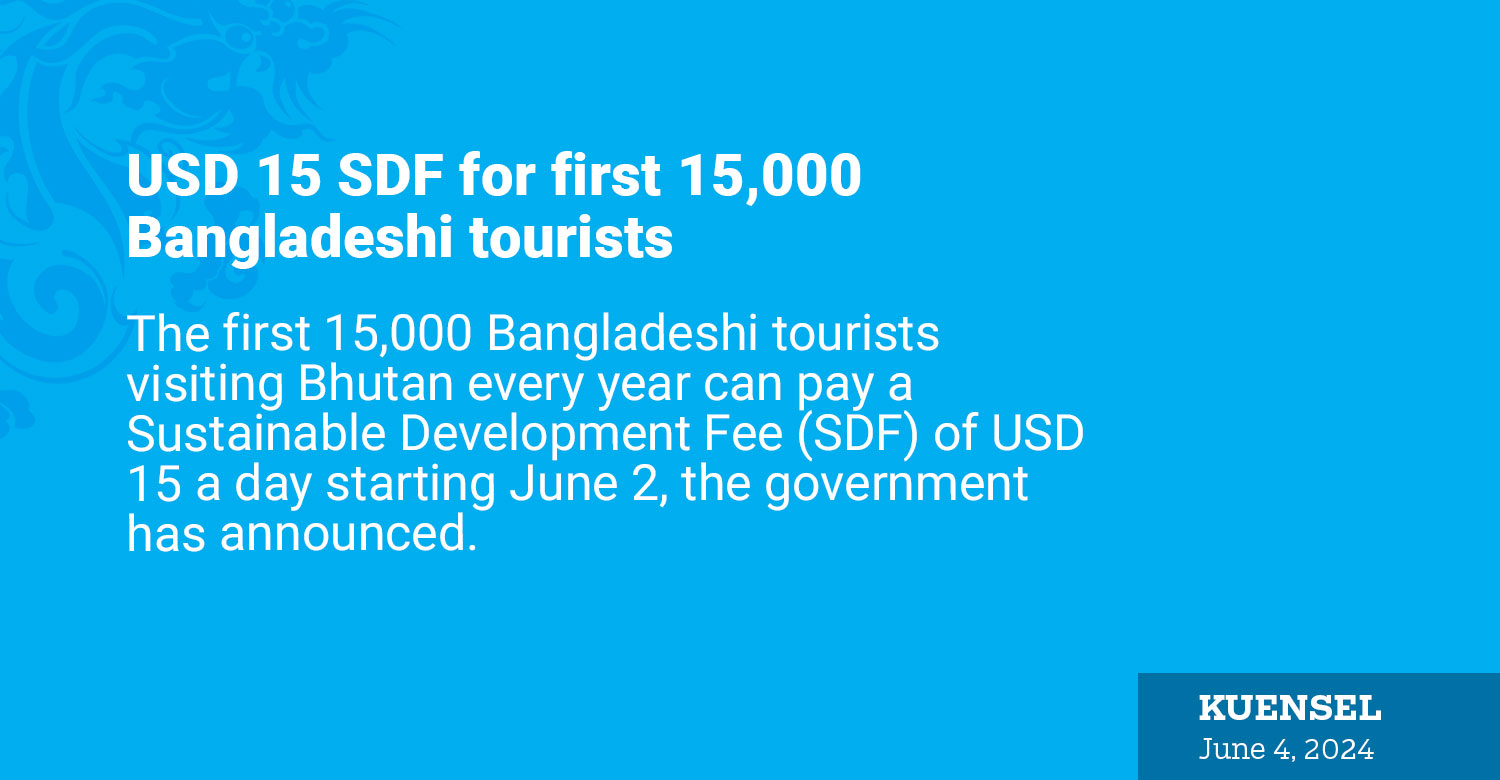
The first 15,000 Bangladeshi tourists visiting Bhutan every year can pay a Sustainable Development Fee (SDF) of USD 15 a day starting June 2, the government has announced.
This special scheme will be valid until 2027. This amount is equivalent to Rs 1,200 currently levied on Indian tourists. If the number of tourists exceeds 15,000 in a year, the remaining tourists will have to pay the usual USD 100 SDF a day.
Following the implementation of the new tourism policy in September 2022, Bangladeshi tourists visiting Bhutan have to pay the SDF of USD 200 per day.
According to an official from the Department of Tourism (DoT), Bangladeshi tourists can apply for a visa online or obtain it upon arrival. “The same rules, such as the requirement of guides and hotel bookings, will apply to Bangladeshi tourists,” he said.
In 2019, 315,599 tourists visited Bhutan, of which 13,016 were from Bangladesh, making it the second-highest number from any country.
However, only 15 tourists from Bangladesh have visited the country since the reopening of the borders to tourists, 14 of them visiting this year.
The government of Bangladesh has requested the government of Bhutan to reduce the SDF for Bangladeshi tourists in several bilateral meetings.
The two governments have signed an agreement on the movement of traffic-in-transit and its protocol, which provides Bhutan with greater connectivity with necessary transit facilities for the movement of goods using multi-model transport arrangements.
Bhutan and Bangladesh have also signed an agreement to establish a special economic zone in the Kurigram district in Bangladesh’s northern region.
Bangladesh has agreed to allocate 190 acres of land in Kurigram for the establishment of a special economic zone for Bhutanese investors.
Additionally, Bhutan and Bangladesh have signed a memorandum of understanding (MoU) for cooperation in the health sector, which includes the establishment of a burn, plastic, and reconstructive surgery unit in Thimphu. Another MoU has been signed between the Competition and Consumer Affairs Authority of Bhutan and the Directorate of National Consumers Rights Protection of Bangladesh.
Bangladesh has extended its support to Bhutan by offering special training opportunities to Bhutanese officials at the Bangladesh Agricultural Research Council. This initiative aims to enhance knowledge and expertise in agriculture-related fields.
Furthermore, Bangladesh has offered to raise the number of annual MBBS seats for Bhutanese students from 22 to 30.
Bhutan and Bangladesh established diplomatic relations in 1973, two years after Bangladesh’s independence.











